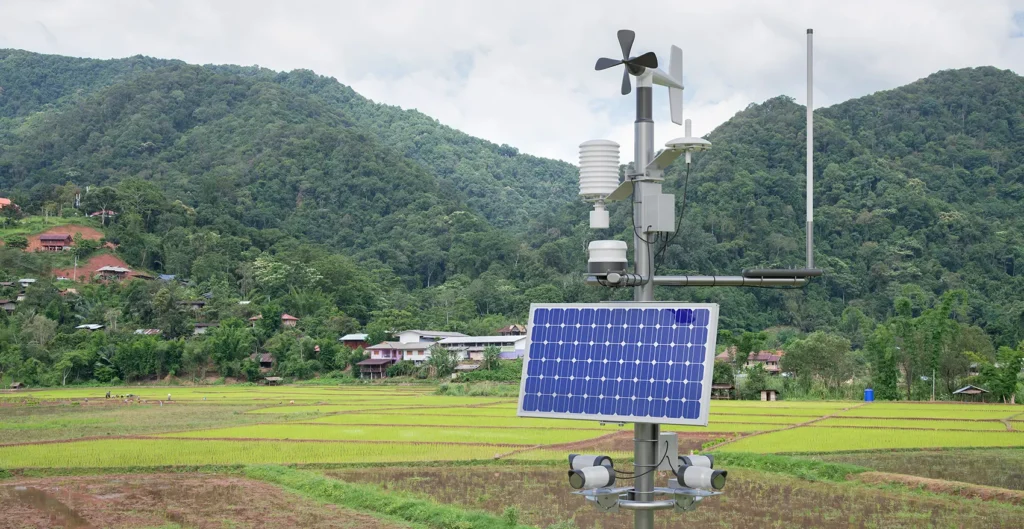COUNTRY-LED, PEOPLE-POWERED
Cross-cutting Enablers of Systems Change
- Home
- Cross-cutting Enablers of Systems Change
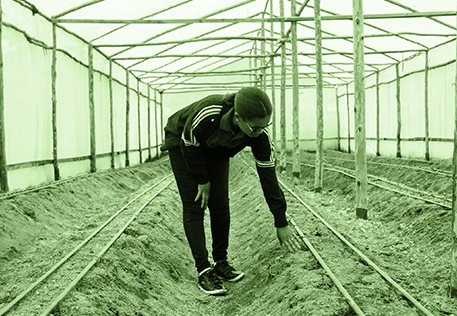
Cross-cutting Enablers of Systems Change
Elevating Youth as Food System Leaders
Africa’s future food systems will be shaped by the young people we empower today. With nearly 60% of the continent’s population under 25, their energy, innovation, and ambition are essential to driving sustainable agricultural growth. The 2024 Generation Africa Youth Survey—conducted by AGRA across 32 countries—confirmed that youth view sustainable agriculture as the top green job opportunity, though many still lack the support to pursue it.
AGRA is listening and acting. From inclusive policy engagement to entrepreneurship support, we are breaking down barriers and investing in youth as leaders—not just beneficiaries—of resilient, inclusive food systems. At the Africa Food Systems Forum in Kigali, over 1,000 youth endorsed this vision through the Kigali Youth Declaration, calling for bold action on climate resilience, food systems, and dignified green employment.
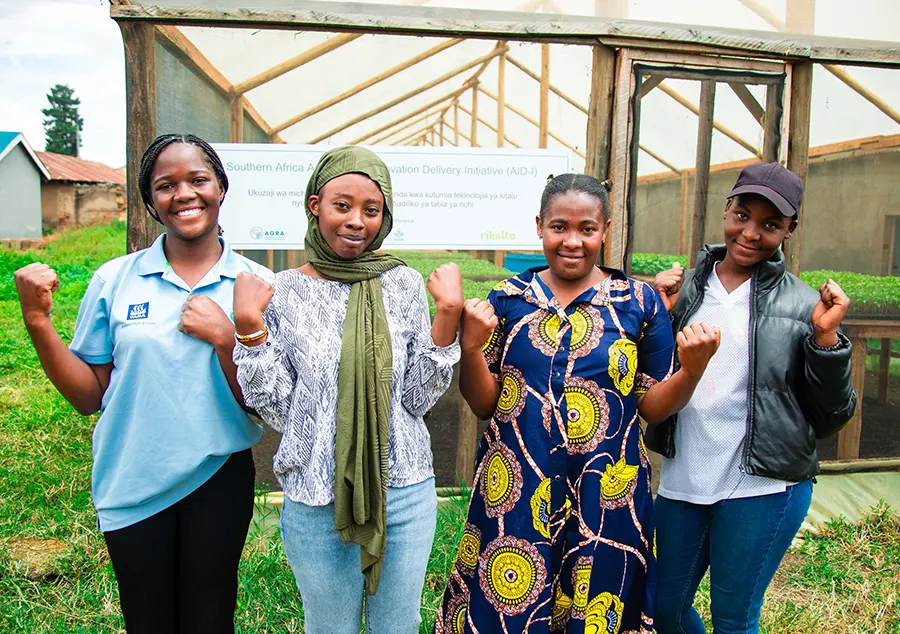
One such leader is Marie Mukagahima, founder of Zima Healthy Group in Rwanda, who transformed local pumpkins into a cross-border agribusiness. Her journey exemplifies the talent and drive of youth across Africa—and the urgent need to scale such models.
YEFFA
Youth Entrepreneurship for the Future of Food and Agriculture (YEFFA)
Empowering Africa’s Youth
Catalyzing dignified and fulfilling work for youth in agriculture
Women’s Leadership
Empowering youth in food systems must go hand in hand with uplifting women, who make up nearly half the agricultural workforce in Africa but face entrenched barriers to land, finance, and decision-making. Many of AGRA’s youth-focused initiatives, like YEFFA, place special emphasis on reaching and supporting young women. But AGRA also recognizes the need for tailored platforms that address the unique needs of women entrepreneurs across value chains. One such platform is VALUE4HER.
VALUE4HER – Elevating women agripreneurs across Africa
VALUE4HER is AGRA’s flagship women-in-agribusiness platform, designed to unlock markets, finance, and networks for women-led enterprises across Africa. Hosted by AGRA and powered by its online platform, VALUE4HERConnect, the initiative offers digital visibility, business development services, and mentorship tailored to women agripreneurs.
With more than 3,500 women-owned agribusinesses registered, VALUE4HER is closing the gender gap in agricultural entrepreneurship by:
Through its continental network, VALUE4HER is not only helping women grow their businesses, it is positioning them as leaders of Africa’s agricultural transformation. As AGRA scales its gender-responsive programming, VALUE4HER will remain central to fostering inclusive growth, resilience, and competitiveness in food systems.
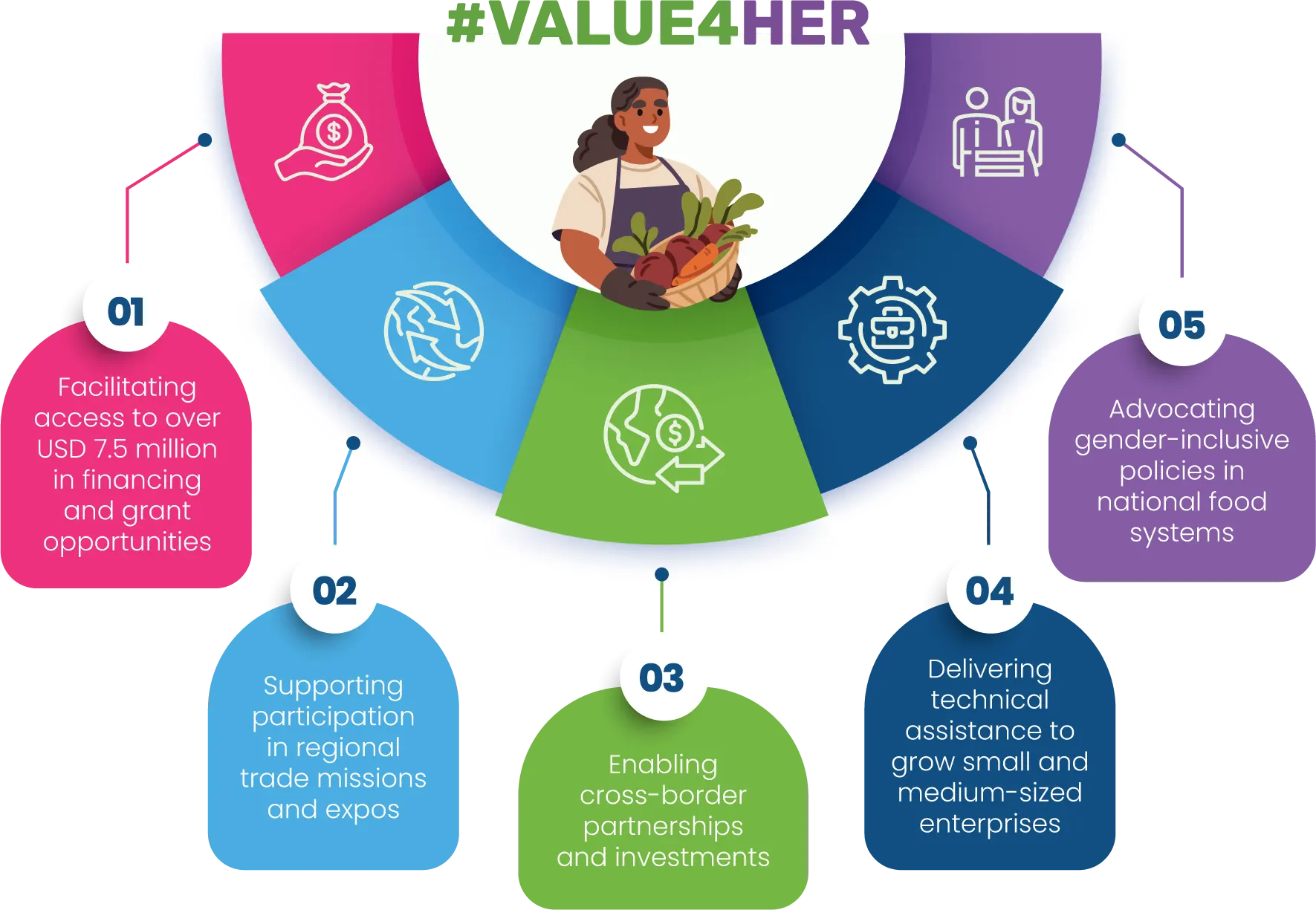
Through its continental network, VALUE4HER is not only helping women grow their businesses, it is positioning them as leaders of Africa’s agricultural transformation. As AGRA scales its gender-responsive programming, VALUE4HER will remain central to fostering inclusive growth, resilience, and competitiveness in food systems.
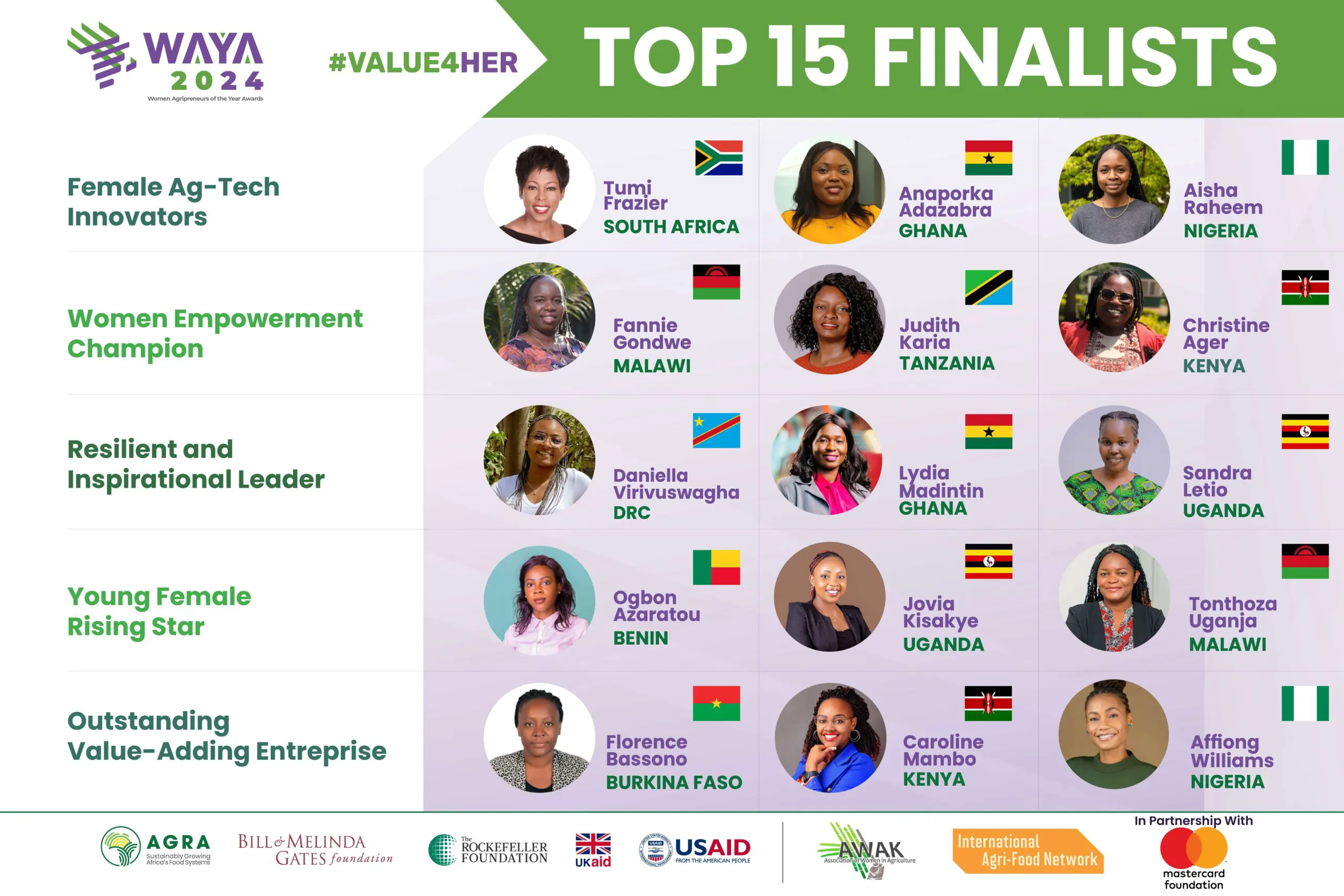
In 2024, AGRA spotlighted its impact through the inaugural Women Agripreneurs of the Year Awards (WAYA)—part of the Value4Her platform—drawing 1,535 applications from Africa’s most innovative women in agriculture from 44 countries.
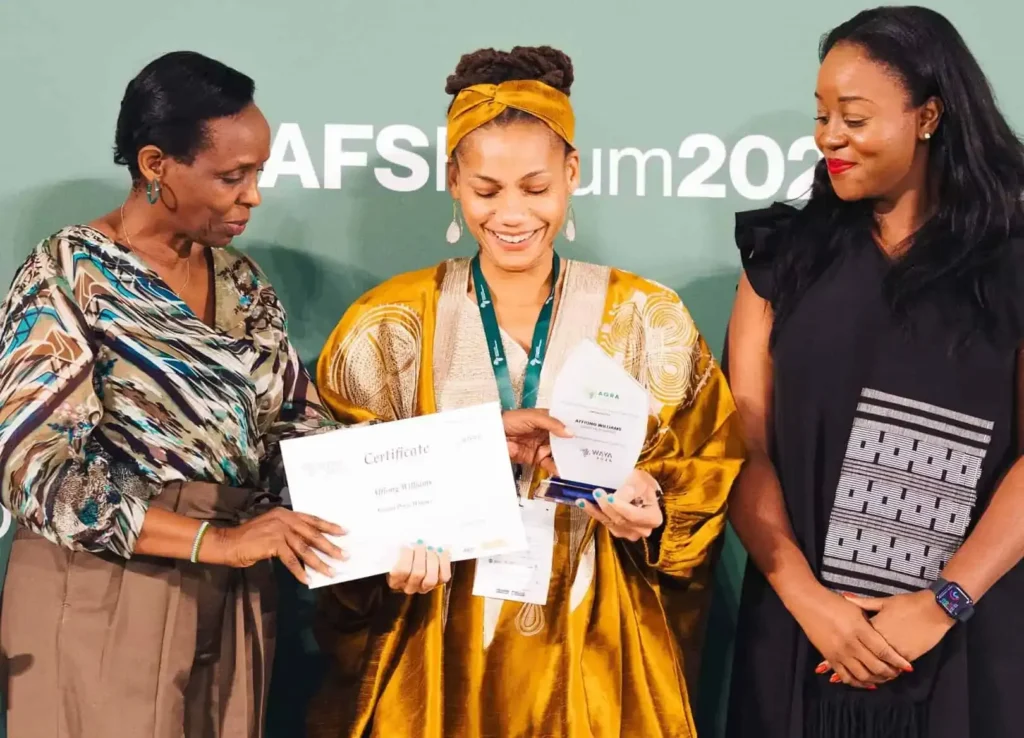
Impact Snapshot
The awards spotlighted women in various categories—young agripreneurs, ag-tech innovators, value adding enterprises, empowerment champions, and resilient leaders—emphasizing role models who are reshaping food systems.
Finalists came from across the continent, including Ghana, Nigeria, Kenya, Malawi, Tanzania, Uganda, Burkina Faso, and the Democratic Republic of Congo.
Why it matters
Value4Her addresses a critical gap: although women comprise ~50% of Africa’s agricultural labor force and contribute 70% of production, they are significantly underrepresented as business leaders.
By recognizing and uplifting these agripreneurs, the program amplifies women’s voices, fosters mentorship through its Value4HerConnect marketplace, and builds networks that catalyze sustainable impact.
This momentum was on full display at the Africa Food Systems Forum in Kigali—where finalists connected with investors, policymakers, and peers, reinforcing the importance of policy-focused, female-led transformation in agriculture.
Climate Action
Climate-smart farming practices, improved seed varieties, policy engagement, and resilience-building investments are helping countries adapt to climate change while safeguarding food systems and livelihoods.
Accelerating access to climate-smart, nutritious seeds
In 2024, AGRA fast-tracked the production, certification, and distribution of climate-smart and nutrient-rich seed varieties, supporting countries to scale the right seeds for changing climates and diverse nutritional needs.
Through targeted grants and investments totaling USD 2.47 million, AGRA facilitated the accelerated release of improved maize, rice, and soybean varieties in four new countries: Togo, Côte d’Ivoire, Sierra Leone, and Burundi. Similar investments by CESSA expanded access in Nigeria, Malawi, Zambia, Kenya, Mozambique, and Burkina Faso.
AGRA also supported early generation seed production in Ethiopia, Malawi, Uganda, Kenya, Nigeria, Mozambique, Ghana, and Mali to strengthen supply chains from breeder seed to farm-ready varieties.
To improve seed traceability and combat counterfeiting, AGRA worked with national partners in Uganda, Malawi, Ghana, and Ethiopia to introduce electronic seed labeling systems, enabling farmers to better trust the seed they buy.
Increased adoption of diverse, nutrient-dense, climate smart varieties
- Private seed companies in Nigeria and Tanzania recorded a 40% increase in sales through village-based advisor-led small-pack distributions.

- Ghana and Nigeria recorded an increase of 14% in the adoption rate of improved varieties, based on outcome surveys from mature investments funded by USAID and KfW.
- 1,925 MT of biofortified seeds were produced, with over 23,153 farmers adopting the varieties on over 12,058 acres.

- AGRA’s school feeding program, supported by Rockefeller, incorporated biofortified foods such as high-iron beans and pro-vitamin A maize to benefit thousands of schoolchildren.
- In 2024, the program expanded its coverage to reach 571 schools in Tanzania, 120 in Malawi, and 1,143 in Kenya, providing nutrient-dense meals to

